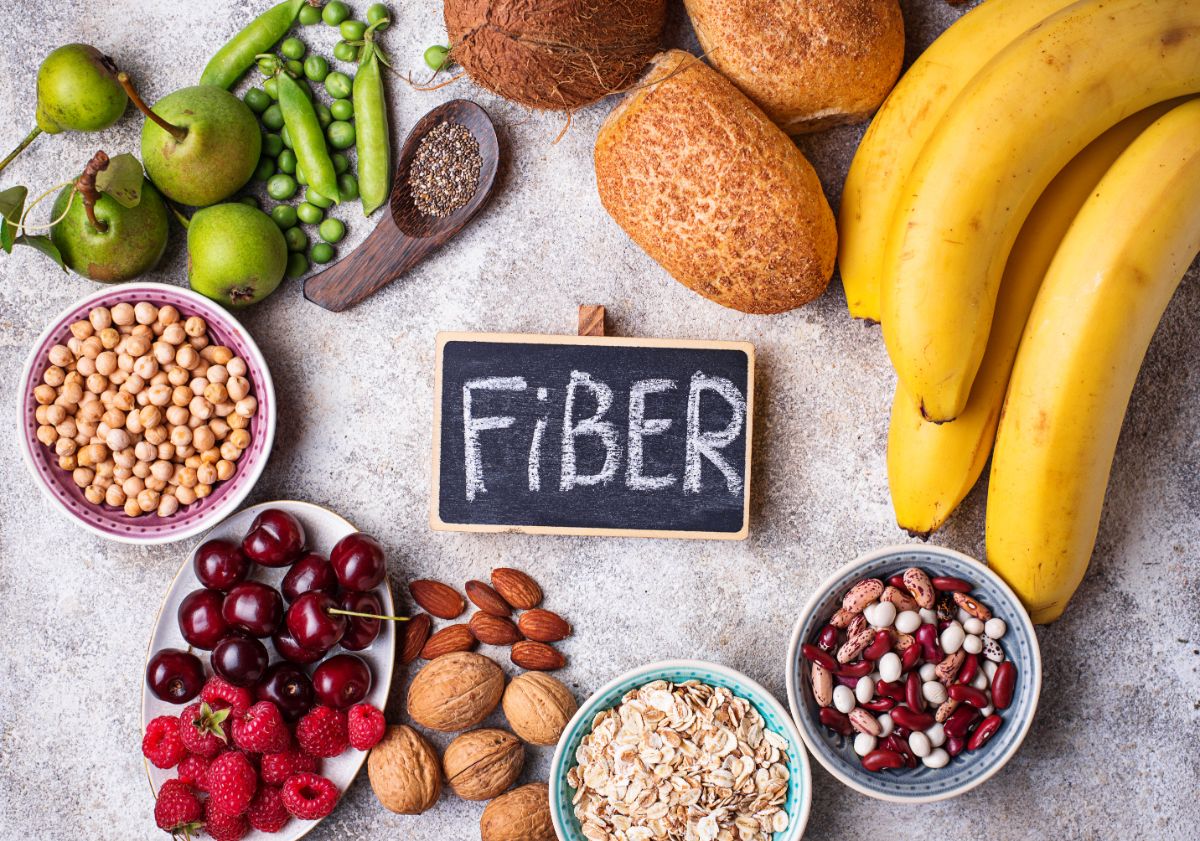
8 Major Signs of A Fiber Deficiency
What are the signs of a fiber deficiency?
- Constipation
- Feeling hungry even after a meal
- Weight gain
- Blood sugar fluctuations
- High cholesterol
- Tiredness
- Inflammation
- Stubborn acne
Fiber is an essential nutrient. It provides several impressive benefits for the body, such as maintaining a healthy weight, boosting gut health, and normalizing bowel movements. But when you don’t get enough fiber in your diet, you not only miss out on these amazing benefits, but you’re also likely to suffer from unpleasant side effects of fiber deficiency. Worried that you’re not getting enough fiber in your diet? Here are the eight tell-tale signs of a fiber deficiency:
Constipation

The most common and most obvious sign that you’re lacking fiber is stomach issues — particularly, constipation. Other digestion issues like bloating and diarrhea can also be caused by a fiber deficiency. This is because fiber is what draws water to your stool, allowing it to pass smoothly through your intestines.
Constipation can eventually lead to stomach pain and even nausea. So, be sure to up your fiber intake if you’re suffering from constipation.
Feeling hungry even after a meal
Fiber is a very, very dense nutrient. It takes a lot of time for this nutrient to be broken down in your stomach. This is why you feel more full when your meal is high in fiber. And, fiber expands when it absorbs water, which contributes to that feeling of fullness.
All of this sends signals to your brain that you are full, which helps keep you satisfied after a meal for longer. But, when your meals are low on fiber, you’re more likely to feel hungry soon after eating — no matter how much you’ve actually eaten.
Weight gain

Since eating a fiber-rich meal keeps you full for longer, experiencing fiber deficiency may lead to you snacking constantly just to feel satisfied. This makes weight management difficult, and you might find yourself struggling to keep off those few extra pounds. But, fiber adds more volume to your meals, without adding extra calories. This can help you manage a healthier weight easily in the long run.
Blood sugar fluctuations
If your blood sugar levels are spiking right after a meal, it could be the result of fiber deficiency. This typically happens when you have a meal that contains lots of carbohydrates.
Your body can deal with carbohydrates better when they are slowly released, instead of in big doses at once. Fiber is needed to help steady the release of these carbohydrates and balance your blood sugar levels.
If you’re able to stabilize your blood sugar levels through better fiber intake, you should see improvements in your mood, energy levels, and weight maintenance.
High cholesterol
Fiber, specifically soluble fiber, is known for its major role in cholesterol management. This nutrient can reduce the levels of “bad” cholesterol in your system by binding to them, and filtering it out before it can gum up your arteries.
This is why adding more fiber into your diet is important for heart health. In fact, for every seven grams of fiber daily, your risk of heart disease drops by 9%!
Tiredness

Do you find it extremely difficult to get up in the morning? Are you drained even before you start your workout? Feeling sluggish at the start of your workday? Constantly find yourself dozing off on the couch when you’re supposed to be watching your favorite show? If you constantly feel tired, it might be due to a fiber deficiency.
As we mentioned earlier, fiber is what our body uses to balance our blood sugar levels. It keeps carbohydrates released at a snail-like pace as it moves through your digestive system. Thus, it takes much longer for energy to be synthesized, and injected into your bloodstream. The result is more sustainable energy levels. With enough fiber, you could feel energized all day long and avoid early afternoon crashes.
Inflammation
If you’re experiencing inflammation, this could be caused by not drinking enough water, or another nutrient deficiency. Though, it’s still a possibility that all you need to resolve your inflammation symptoms are some more fiber in your meals.
This is because a low fiber diet means that your gut microbiome is not getting the food it needs to maintain itself. The “good” bacteria need fiber to stay alive and healthy, and without it, other microbes can easily take over and throw your microbiome out of whack.
A healthy, well-balanced microbiome is essential for your good health — particularly when it comes to fighting off inflammation. The reason behind this is that your immune system largely resides in your intestinal walls. And, when your microbiome is out of whack, your immune system is too. Thus, your immune system is more likely to unnecessarily trigger inflammation reactions throughout your body.
Stubborn acne

Diet and your skin’s appearance are closely linked. The fiber in particular plays a big role in preventing acne breakouts. How? Fiber, like it soaks up water, also soaks up toxins in your blood and carries them out through your digestive tract. This prevents toxins from building elsewhere, such as in your pores. So eating more fiber may just be what you need to keep pimples at bay and clear up your skin.
Key Takeaway
From constipation to excessive tiredness, the signs of a fiber deficiency can be a pain to deal with. That said, upping your fiber intake is as easy as taking Essential Supplements’ Nutrimeal from USANA. Packed with healthy protein and fiber, you’ll have all you need for a filling meal and a great start to your day!
Other Blogs

5 Energy-Boosting Vitamins Women Should Take
What are the essential energy-boosting vitamins women should take? Vitamin B-12 Vitamin D Iron Magnesium Vitamin C Overview This article talks about the different energy-boosting vitamins women should take for better health. It explains how various nutrients can help support their ability to maintain energy while also enhancing their overall wellness. These vitamins are important […]
READ MORE
Do I Need Vitamin D During the Summer?
Overview Taking care of your health doesn’t stop when the sun is out. Many people wonder whether they still need supplements during the summer season. In this article, readers can discover whether they need to take Vitamin D in the warmer months. The lack of Vitamin D can result in various conditions related to bone […]
READ MORE
Pro-Tips to Stay Healthy This Summer
What are pro-tips you should follow to stay healthy this summer? Boost immunity by taking vitamin C Strengthen bones and mood with vitamin D Stay hydrated throughout the day Reapply your sunscreen Dress for the heat Stay active Overview Sunny days come with challenges, but staying healthy in the heat is easy with the right […]
READ MORE